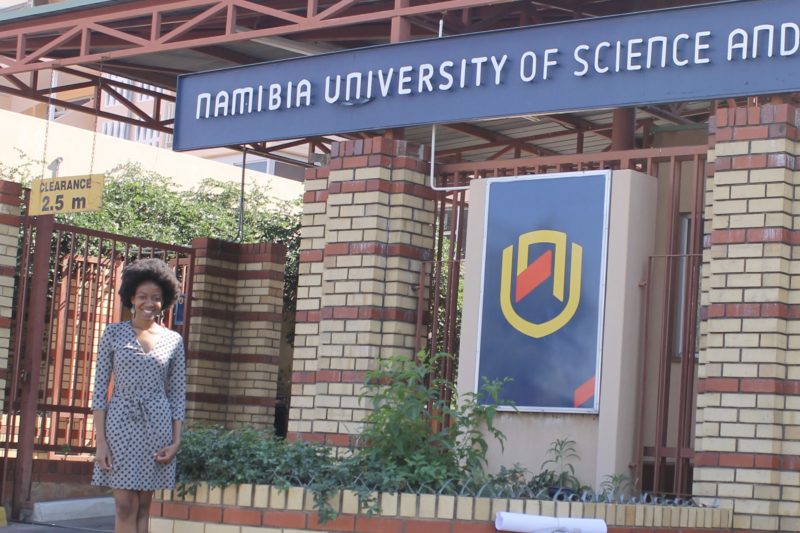By Asnath Kambunga
When the flight captain announced that we will be landing at Hosea Kutako International Airport in a few minutes, I looked over to the aircraft’s windows for a perfect view of the dry, mountainous landscape with short scattered bushes that I longed to see. I was overjoyed, eager to see my family and friends, but a little anxious of returning as a researcher in my home country, Namibia.
On the 1st of May 2019, I arrived in Windhoek, Namibia from Aarhus, Denmark where I am enrolled as a PhD Student at Aarhus University in the department of Digital Design and Information Studies. Coming back to Namibia was not simply for holiday purposes as my friends and family wished, but I came for my secondment at the Namibia University of Science and Technology (NUST) and to carry out my field work from May-October 2019.
During this period, I will be working in the department of Computer Science with my PhD co-supervisor Professor Heike Winschiers-Theophilus. Professor Winschiers-Theophilus and I have a long, working professional relationship; she was my supervisor during my bachelor’s and my master’s studies at the same university. She nurtured me, immensely shared her knowledge, allowing me to increase my research skills, and at the same time steered me in the right direction.
NUST has an internationally recognised track record of expertise and publications in the field of indigenous knowledge technologies, which directly contributes to indigenous digital cultural heritage preservation. Specifically, Professor Winschiers-Theophilus’ work has been about applying community-based co-design methodologies based on participatory action research paradigms. She is actively engaged in involving indigenous and marginalised communities in the informal settlements and in rural areas in Namibia in design interventions. Being at one of the POEM partner academic institutions, Professor Winschiers-Theophilus will contribute to and support my project by sharing her experiences in co-designing technologies with the Namibian youth. I therefore have no doubt that I am at the right place to receive the support necessary to carry out meaningful fieldwork.
During the 6 months stay in Windhoek, I will be working with Namibian youth to collaboratively explore and collect their everyday post-colonial experiences. Together, we will co-design interactive technologies that will capture and showcase narratives and representation of the Namibian youth. Through this process, I am aiming to create awareness on the youths’ post-colonial everyday experiences which will make their voices heard within their communities and in the larger context of the POEM project.
I am grateful for this opportunity, which allows me to travel back home to conduct my field work, while still being able to return to Aarhus and reflect on my research outcomes with new perspectives and knowledge. Although I am happy to be back in Namibia, I also miss being in Aarhus for opportunities such as having every-day access to my primary supervisor- Professor Rachel Charlotte Smith and being able to meet, interact and learn from many international students.
Email: akambunga@cc.au.dk
Twitter: @asnathpaula


